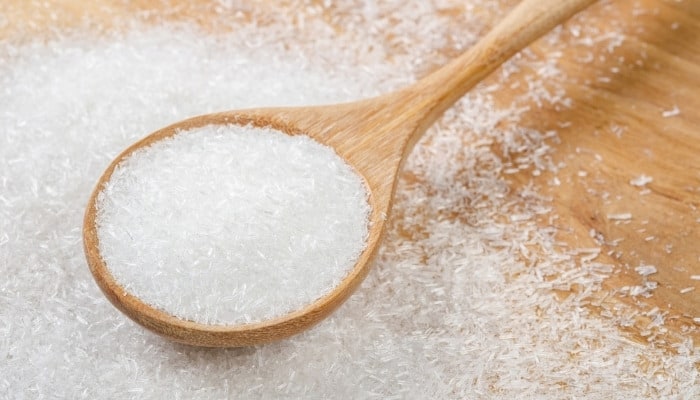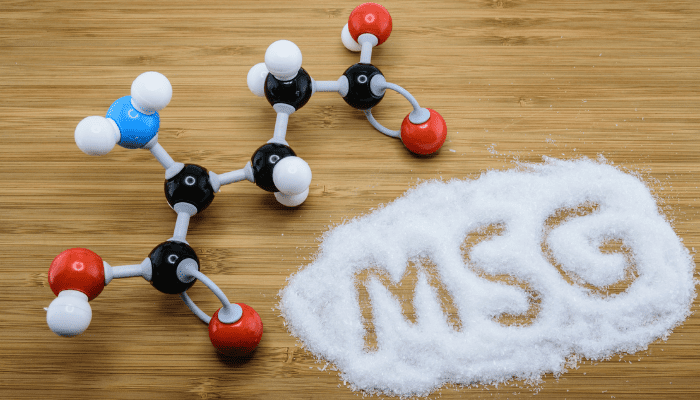Bringing up the term MSG in a discussion typically elicits a negative reaction. This is because numerous individuals hold the belief that monosodium glutamate is harmful to one’s well-being.
However, in the plant world, when used as a fertilizer, this food additive is exceptionally beneficial to plant health.
Is MSG good for plants? MSG is an excellent fertilizer for plants as it is high in nitrogen and minerals. When used as a plant nutrient, it can aid in healthy plant development, accelerate growth, and enhance the development of flowers and fruit. It can also be used to deter insects from plants.
Keep reading if you want to pump up your garden’s performance with MSG. It could be the secret ingredient you’ve been looking for!
Using MSG as a Fertilizer
MSG contains high levels of minerals that are beneficial to plant growth and development. Therefore, when used as a fertilizer, it has some amazing benefits.
Is MSG an Organic Fertilizer?
MSG is considered an organic fertilizer produced by fermenting plant-based ingredients, such as corn, sugar beet, sugar cane, or cassava.
Benefits of Using MSG on Your Plants
Using MSG on your plants is very beneficial because it is nutrient rich. It aids in plant growth and is a cheaper alternative to regular fertilizers that may contain heavy metals.
In addition to being a good fertilizer, it can also be used as an insecticide to ward off plant pests.
Nutrients Found in MSG
MSG is rich in several nutrients, each beneficial to plant development. These include nitrogen, phosphorus and potassium.
However, trace elements of calcium, magnesium, sulfate, ammonium, and magnesium can also be found in MSG.
Most importantly, MSG contains organic matter and various amino acids required for healthy plant development.
Is It Safe To Use MSG on Plants?
While some people say MSG is bad for plants, there is enough evidence to suggest that it’s a safe and cheap way of fertilizing and protecting your plants from unwanted pests.
In fact, MSG is used by many farmers worldwide to improve crop yields and enhance the effectiveness of pesticides.
What Plants Benefit From MSG?
MSG is beneficial to many plants and can improve plant health as well as fruit and flower production.
However, several plants specifically enjoy a healthy dose of MSG; these include coconut trees, succulents, and cactus varieties.
The coconut tree, in particular, thrives on the sodium levels found in MSG.
In addition, most vegetables benefit from an MSG fertilizer as it improves crop production and keeps them disease and pest free!

Is MSG Good for Flowering Plants?
MSG contains potassium, which is required for healthy flower development.
Therefore, when used as a fertilizer for ornamental plants, MSG can boost root development, increase bloom production, and improve overall plant health.
Is MSG Good for Orchids?
Fertilizing orchids with MSG can improve plant growth and enhance flower production. However, MSG should only be applied to mature, established orchid plants to prevent fertilizer burn.
Is MSG Good for the Garden?
Because of its organic nature, MSG is perfect for the garden.
The organic matter found in MSG improves soil quality, which aids with water retention and provides a nutrient-rich environment for your plants.
In addition, the sulfur found in MSG acts as a disinfectant for the soil, ridding it of disease-causing bacteria. Therefore MSG helps to keep your garden healthy and flourishing.
Is MSG Good for Indoor Plants?
Indoor plants thrive when fed with MSG. The fertilizer can be used either as a foliar spray (which most indoor plants love!) or applied directly to the soil.
When To Use MSG for Plants
MSG should be used in the same way as traditional fertilizers – during the growing season when plant growth is active.
Depending on the size of the plant, the MSG solution can be adjusted for smaller or bigger plants and applied every two weeks.
If applying the fertilizer as a spray, do this in the evening to allow the leaves time to absorb the liquid.
How Much MSG Per Plant?
The size of the plant determines how much MSG should be used when mixing your fertilizer.
Small-medium / less than a year old
- Fill a container with approximately 5 liters of water.
- Add 1-2 tbsp. of MSG, and mix thoroughly.
Large/established
- Mix 5 tbsp. of MSG for every 1 liter of water needed.
How Often To Apply MSG
Apply the MSG fertilizer every two weeks during the growing season.
However, ensure you follow the guidelines above regarding plant size to ensure your plants don’t suffer from scorched foliage caused by over-fertilizing.
Where To Buy MSG for Plants
MSG has an extensive online presence and is readily available to purchase at a relatively cheap cost. Well-known brands include Vetsin and Mong Lee Shang.
However, the Ajinomoto brand is possibly the most popular and can be used to flavor your favorite dish or fertilize your plants.
Precautions When Using MSG on Plants
As with all fertilizers, MSG can cause plant distress if applied in excessive quantities. Plant issues that may occur include scorched leaves and dead or drooping foliage.
This is caused by sodium toxicity which can occur if plants receive too much sodium via the MSG fertilizer. These issues can be avoided by following the mixing guidelines above.
How To Use MSG on Your Plants
Mix a solution of MSG fertilizer according to plant age or size. Then apply the solution directly to the soil around the base of the plant or as a foliar spray.
Applications should be administered once every two weeks during the summer.
Related Questions:
Is MSG Acidic or Alkaline?
According to the pH scale, a pH less than seven are considered acidic, while pH values of more than seven are alkaline.
Solutions containing MSG can have a pH value of between 6.7 and 7.2 and thus are considered neutral.
What’s the Difference Between MSG and Salt?
MSG is a non-essential amino acid, while salt is a mineral. Both are used to enhance the flavor of food and act as preservatives, extending the shelf life of many foods.
However, the main difference is down to their taste. While salt is salty, MSG is not and is used as a seasoning to enhance food flavors.
Furthermore, salt has many uses and can even be used as a body scrub or to produce other products such as soy sauce, but MSG can only be used as a seasoning (or fertilizer) and doesn’t have many uses.
Conclusion
While using MSG to enhance the performance of your garden may raise eyebrows in certain circles, its many benefits cannot be denied.
Every gardener dreams of a lush, disease-free, flower- and fruit-filled garden; maybe MSG is the answer? Try it and see!

